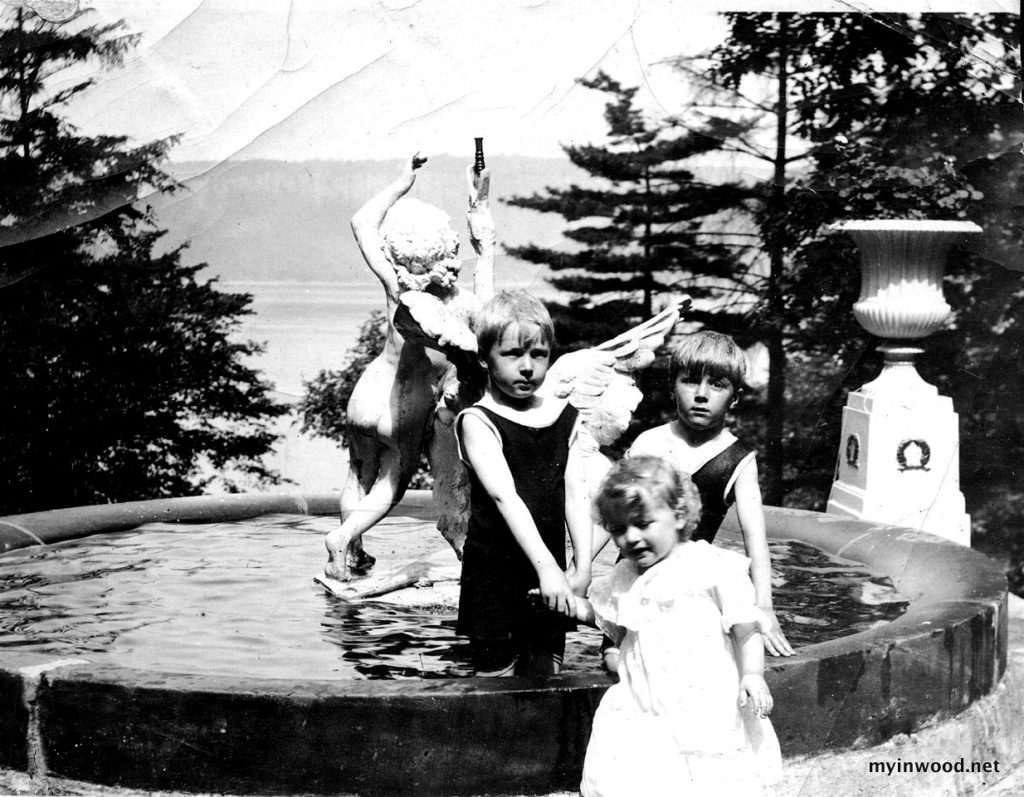
Walter Francis Burns woke from a terrible dream on the porch of his home on the western slope of Inwood Hill–a beautifully landscaped northern Manhattan property which overlooked the Hudson River.
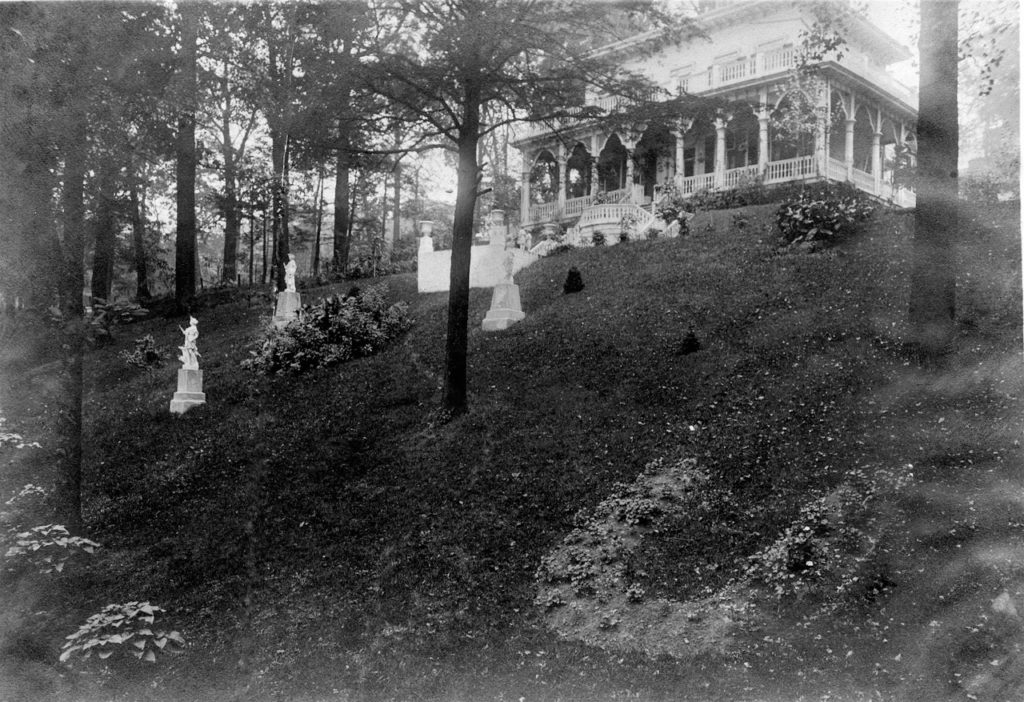
During his chilling nightmare, Burns witnessed his youngest son, Otway, run over by an automobile not far from his family estate.

The elder Burns rushed inside to find eight-year-old Otway playing with his brother in the parlor.
The 46-year-old father had never been so relieved to see his children.
The dream had been so graphic–so shockingly real.

The nightmare frightened Burns so much that he mentioned it to his wife, Ursula, later that evening.
Burns, a successful banker from a prominent American family, doted on his wife and kids.

Burns named his estate “Ursulian Terrace”– a tribute to his wife, Ursula.

Years later the Burn’s property, and many others, would be absorbed into a great city park called Inwood Hill Park– but in 1912 the surrounding land remained in private hands.

Courtesy: www.thewsburns.com
Burns made a fortune selling subscriptions to a home banking system of his own design–once used in eight million homes around the world.

His great-grandfather, Otway Burns, his young sons’ namesake, had been an American privateer during the War of 1812– and later served as a North Carolina State Senator. The town of Burnsville, North Carolina is named in honor of Otway Burns–a statue of his likeness stands in the town square.
If his great-grandfather could have seen him that October evening—scared half-silly by a dream.
What nonsense.
But the following morning he had the dream again.
Not long after waking from this second nightmare–the frightening vision came true.

Otway was struck and killed by an automobile at the intersection of Dyckman Street and Broadway while picking up the morning paper for his father.
Consumed by grief, Burns must have also believed he was losing his mind.
For the next five years the distraught father searched for answers in the world of the paranormal.

His primary contact in this unusual quest was a “psychic investigator” named Professor James H. Hyslop who ran the American Institute for Scientific Research.
Their correspondence, which spanned half a decade, reads more like a script from the Twilight Zone than the Inwood histories you have come to know on this site.

Courtesy: www.thewsburns.com
“Dear Mr. Hyslop.” Burns began in a letter dated November 23, 1912.
“ An incident recently occurred in my life that may be of interest to you.
On Saturday, October 12th, I remained home all day at my residence, Inwood on Hudson, New York City. About 3 P.M. that afternoon, not feeling very well, I took a nap on the sleeping porch attached to my residence; at 4 P.M. I jumped up from the cot and in a frenzied manner said to my wife, “My God! I just dreamed that our son Otway was killed by an automobile!” We all retired that night about 9 P.M., and the next morning at 8:30 I awoke suddenly, I had just had a dream that something had happened to my son Otway and I said to my wife, “Where are the boys?” She remarked they have gone to the Subway Station for the Sunday papers. I inquired how long they had been gone, and she answered about 40 minutes; in reply to this I said this is altogether too long, they should have returned long ago. Just two minutes after this a man came running up River Road just north of Dyckman Street, where my residence is located, and called out, “Mr. Burns, your son Otway has just been killed by an automobile.” He was killed at 7:40 A.M., just 40 minutes before this time, at the corner of Broadway and Dyckman Street.

…My son Otway was 8 years, 8 months and 3 days old; he was accompanied by his brother, who is one year older.
-Yours Truly, Walter Francis Burns”
In the years that followed Burns would offer proof that the dream had preceded his son’s death. He offered the testimony of his wife to whom he had related details of the dream the night before.
“She does not know anything about the dream the next morning,” Burns confided. “I did not like to tell her and have never told her.”

Perhaps Burns didn’t want to further disturb his already grieving spouse. Besides, he had kept a daily diary for more than twenty-five years in which he described the prophetic dream.
On October 12, 1912–a Saturday–Burns wrote:
“Remained home all day. Bad cold. At about 4 P.M. I awoke from a deep sleep on the back porch & jumped up & remarked to Ursula, Oh what a dream I had. I dreamed that Otway had been run over by an automobile.”
The following day, Sunday, October 13, Burns turned again to his diary:
“Our darling son Otway Burns IV killed by an auto, corner of Broadway & Dyckman Street at 7:50 A.M today. How much I could write & how much I could say. But oh my God. Have mercy on me & my darling wife, children and family…oh, that awful cry out of Owen Austin Burns. A man hollered up from River Road calling Mr. Burns and Owie ran out to hear what he said and Owie said Otway had been killed by an automobile.”
Professor Hyslop spent the next five years investigating the strange case of Walter Francis Burns.
He would learn that Burns was “a Unitarian, not in the least inclined to superstition.”
Could Burns have feared for his son’s life in some manner before the accident?
“There was no reason why we should attach any particular fears regarding our son Otway,” Burns responded to one inquiry.
“In fact he was so methodical in his ways that we had been inclined to fear more for his brother.”

But the question remained, had Burns foreseen the death of his young son?
“Any man who does not accept the existence of discarnate spirits and the proof of it is either ignorant or a moral coward,” the psychic investigator would later write. (James H. Hyslop, Life After Death, 1918)
However, Professor Hyslop, a firm believer in the spirit world, conceded that the “doctrine of chance,” could also have provided a “normal” explanation for uncanny timing of W.F Burn’s dream.
Of course there are no “normal” explanations in THE INWOOD ZONE where even today park goers still catch glimpses of a young boy, newspaper in hand, searching for a home that vanished nearly a century ago.

Note: The source of Burn’s letters and diary entries is: The Journal of the American Society for Psychical Research, Section “B” of the American Institute for Scientific Research, 1919. Newspaper accounts, family genealogies and census reports confirm the rest of this bizarre tale.

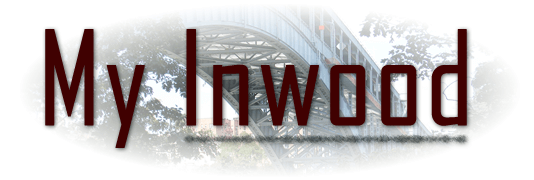
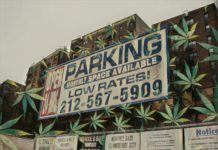

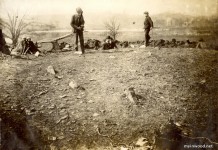




Dear Cole: You continue to amaze me with the stuff you dig up…no pun intended.
Betty
[…] Read more: Paranormal Inwood: The Strange Case of Walter Francis Burns | My Inwood […]
So happy to have found this website as I was a long time resident of Inwood (1973 to 1985). I lived at 603 Academy St. and graduated from both 98 and 52. While on the subject of the paranormal, the apartment and hallways of 603 Academy were /are very haunted! I have several stories of my growing up in apartment 2F where my mother and siblings also experienced various levels of sightings, sounds and poltergeist activity. I would love to learn what stood in this spot prior to the building or who lived in the building. Any old stories on crimes or Native burials at 603? Thanks!